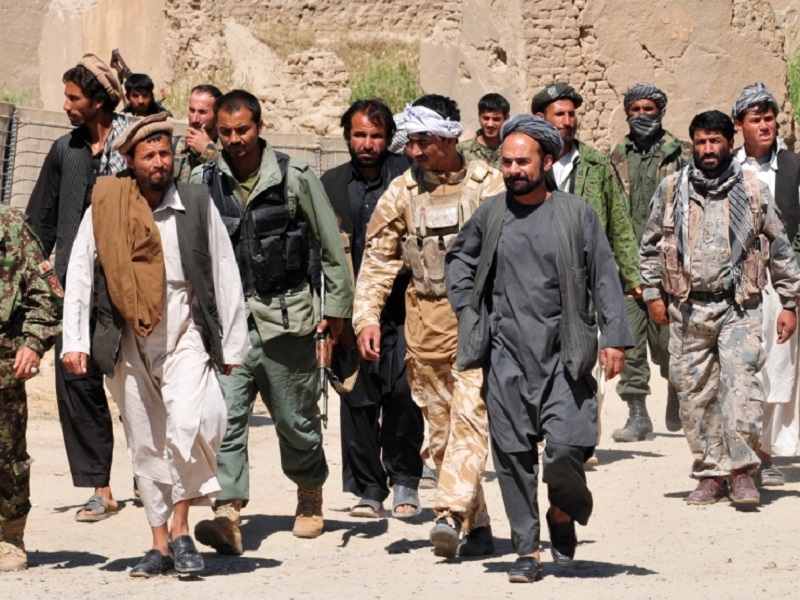
Activists Remain Skeptical as Taliban Leaders Communicate Progressivism
10/13/2021 Washington, D.C. (International Christian Concern) – International Christian Concern (ICC) has learned that Taliban leaders are taking steps to instruct the religious police to be more moderate. The religious police have traditionally been feared throughout Afghanistan because of their brutality in enforcing the Taliban’s extreme interpretation of Sharia law. Now, they are trying to shake hands and charm communities. Reports have surfaced of local religious police taking time to encourage shoppers to follow the edicts of Sharia law and to make sure women’s heads are covered.
A team of CNN reporters was recently allowed into the Ministry of the Propagation of Virtue and Prevention of Vice, directed by senior Taliban figure Mawlavi Abdullah Mohammad. The location housed the Ministry of Women before being converted into a tool for Taliban control. The new ministry’s role is to encourage all Afghans to follow the Taliban’s version of Islam.
Mohammad, the director of the new ministry, said that “we act with accordance to Sharia law.” He continued, “Firstly, we inform people about good deeds. We preach to them and deliver the message to them in a nice way; the second time we repeat to them, again; the third time we speak to them slightly harshly.” The religious police have been issued a manual that provides them with guidelines on how to carry out their duties.
“We abide by laws and rules,” Mohammad said. “We give advice, but to grab someone’s hand, to beat him up, to send them notice or to send them a warning letter, is against the Emirate’s policy. If anyone has done this, it is a self-assertive act.”
Their enforcement of the law makes no distinction between religious minorities, subjecting all Afghans to Islamic law equally. Christians, Hindus, and other religious minorities will be forced to live by the edicts of the religious police.
Afghanistan’s Christian community, estimated to be between 8,000 and 12,000 people, is comprised almost entirely of converts from Islam who are considered apostates by the Taliban. This status as apostates makes Afghan Christians direct targets for persecution and very likely to suffer under the Taliban’s rule of Afghanistan.
Matias Perttula, Director of Advocacy for ICC, said, “While the Taliban can tell the world that their approach to enforcing their extremist views on Islam will be moderate, the fact remains that they are still enforcing it on all people regardless of their religious disposition. This is religious tyranny. The people of Afghanistan deserve better. The Christians of Afghanistan deserve better. All religious minorities and those who disagree with the Taliban deserve better. Being nice at first makes no difference if, in the end, they force it on all who don’t want to live under their extremist Sharia dictates.”
For interviews, please contact: [email protected].
The post Taliban Instruct Religious Police to Be “Moderate” appeared first on Persecution.
Become a Christian News Network Supporter…

 Dear Reader, has ChristianNews.net been of benefit and a blessing to you? For many years now, the Lord has seen fit to use this small news outlet as a strong influential resource in keeping Christians informed on current events from a Biblical worldview. With much compromise and many falsehoods in modern-day Christianity, we strive to bring you the news by keeping Christ and His word in focus. If you have benefited from our news coverage, please prayerfully consider becoming a Christian News supporter by clicking here to make a one-time or monthly donation to help keep the truth of God’s word widely and freely published and distributed. May Christ continue to be exalted through this work!
Dear Reader, has ChristianNews.net been of benefit and a blessing to you? For many years now, the Lord has seen fit to use this small news outlet as a strong influential resource in keeping Christians informed on current events from a Biblical worldview. With much compromise and many falsehoods in modern-day Christianity, we strive to bring you the news by keeping Christ and His word in focus. If you have benefited from our news coverage, please prayerfully consider becoming a Christian News supporter by clicking here to make a one-time or monthly donation to help keep the truth of God’s word widely and freely published and distributed. May Christ continue to be exalted through this work!Related posts:
Views: 0
 RSS Feed
RSS Feed

















 October 13th, 2021
October 13th, 2021  Awake Goy
Awake Goy 
 Posted in
Posted in  Tags:
Tags: 
















